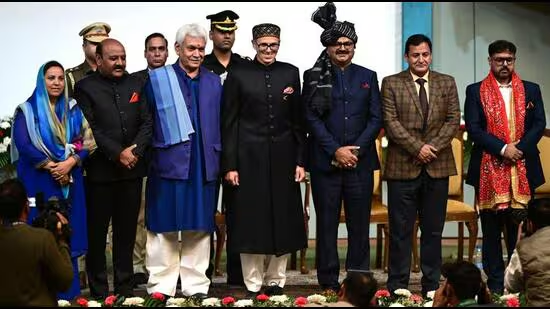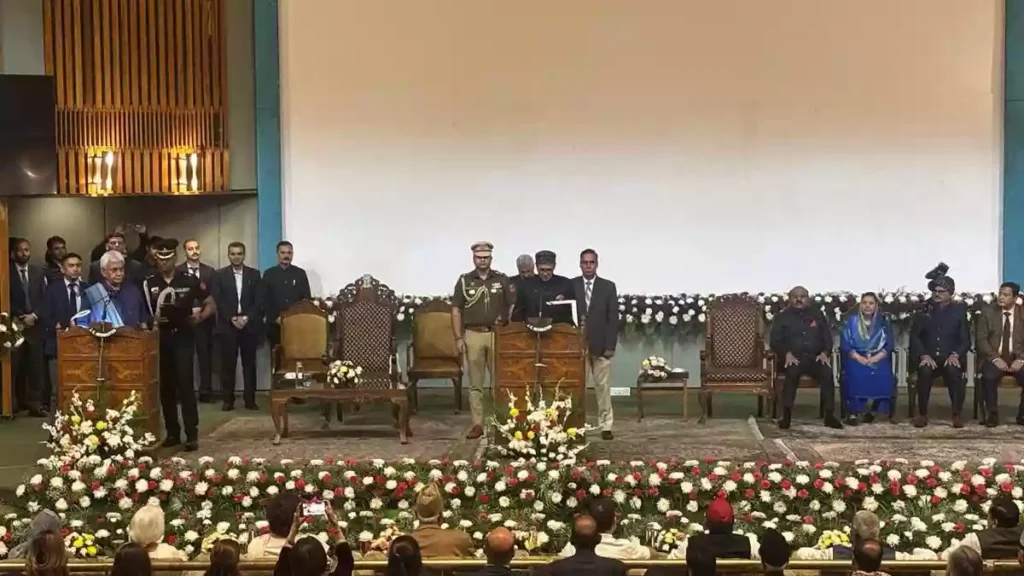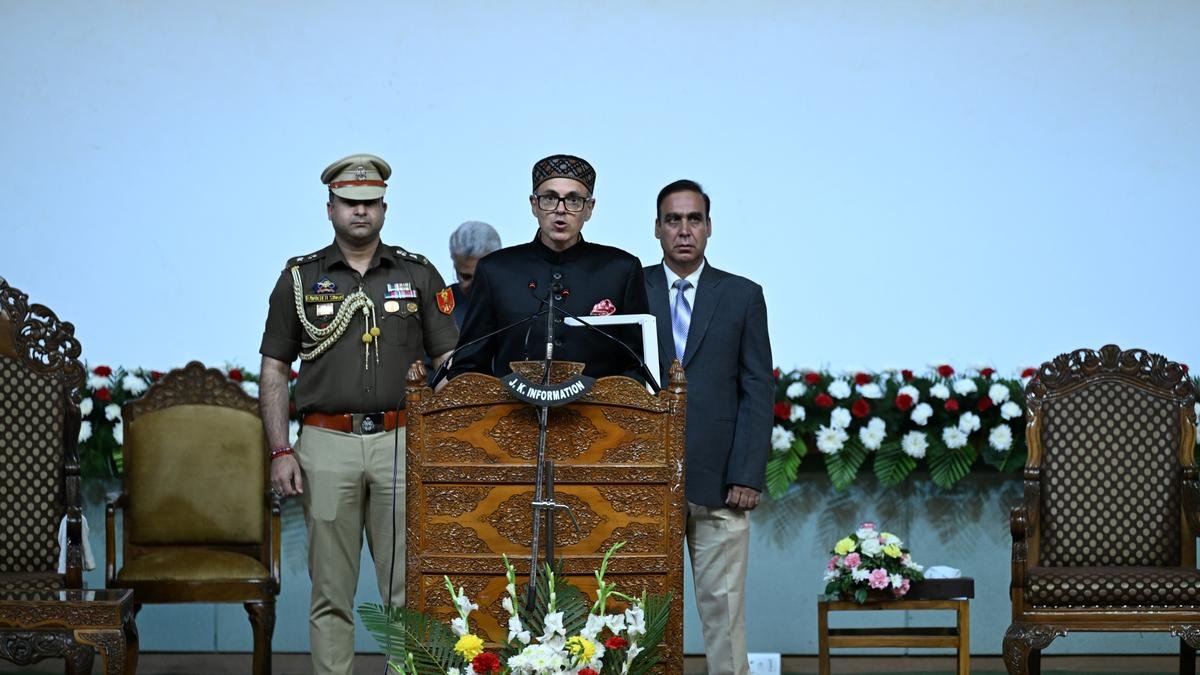The Highlights:
On 16th October 2024, Omar Abdullah was sworn in as the first UT Chief Minister of Jammu & Kashmir, marking a momentous day for this region. It was on this significant occasion that National Conference led other political parties forming a government in the region. The coalition, along with the support from the Congress, Communist Party of India (Marxist), Aam Aadmi Party (AAP), and some independents, may get the majority in the J&K Assembly and, therefore, Abdullah received the mandate to form a government.
The Watershed in J&K’s Political History
It is the first ever Assembly polls in J&K since the Centre abrogated Article 370 in August 2019, following which the state was bifurcated into two union territories, namely Jammu & Kashmir and Ladakh. Abdullah’s return as Chief Minister for the second stint from 2009 to 2014 has ended a long period of central governance under President’s Rule for more than six years.

Abdullah has promised to keep focusing at all costs on restoring J&K’s autonomy and working through the statute of its UT status. Restoring Jammu and Kashmir to its statehood status remains at the core of Abdullah’s demands and that of his party, a demand he reiterated in the wake of the election verdict.
Step One: Scrap Movement Curbs for VIPs
Among his first major initiatives as the Chief Minister, Abdullah promised to reduce public inconvenience caused by the “VIP culture.” In an unflinching directive to the J&K police, he ordered the abolition of the green corridor system for VIP movements, including his own. The government is now eager to minimize such interferences with traffic caused by the movement of high-ranking officials-an activity long criticized as having caused more than a few delays and discomforts in the general public.

Abdullah clearly stated that the new government is going to reduce VIP privilege and that public convenience would be given more importance than before. This does not only signify a change in governance but also rings a change within Abdullah to implement an even more egalitarian approach towards administration in J&K.
Coalition Politics and Governance Challenges
Abdullah’s National Conference managed to win 42 out of the 90 seats in the J&K Assembly. The Congress has six more seats. The CPI(M), AAP, and independents extend support to the coalition. A coalition government run by such a sensitive political region as J&K is never going to be an easy ride. Abdullah has to walk on eggshells between his party agenda, that of the coalition, and the central government.
As Chief Minister, he will have to face intense scrutiny, especially in a region that still faces significant socio-political tensions and suffers from the problems of economic development. Security issues, unemployment, and push for greater autonomy will strongly resonate in his government agenda.
Economic Development and Security
Economic growth in J&K is one of the biggest challenges for Abdullah’s administration. High unemployment and the nearly complete collapse of tourism, a once-concerned source of revenue, mean big work for this new government. Re-igniting tourism will be one of the objects Abdullah has envisioned, along with rebuilding infrastructure and generating employment for youth.
The new government, meanwhile is concerned most with security. With militancy and turbulence yet to recede in parts of the region, Abdullah has promised he will not hesitate to reach out to the forces of security and the central authority for his effort towards returning peace and normalcy.
Jammu & Kashmir at Crossroads
As J&K sets on this new political path with Abdullah at the helm, the region stands at a crossroads. While many challenges abound, the pragmatic approach of the new Chief Minister, along with his decision to abolish VIP movement privileges, is a move toward more inclusive and people-centric governance style. It will be interesting to see how Abdullah’s tenure addresses not just the immediate concerns of the region but how he manages his complex political landscape within the broader framework of the Indian Union.
In a cautious note of optimism, Abdullah said in his first press conference after taking the oath, “Jammu and Kashmir deserves better. We are here to listen to people’s voices and respect them.”
Conclusion
The electoral victory with the first Chief Minister of J&K’s Union Territory is an important shift in the political affairs of the state for Omar Abdullah. That said, Abdullah’s government promises to break the tradition and focus on public convenience over the VIP culture. On this one, it stays well in line with the incoming premier. The eyes are all set to see how the new boy Abdullah will handle the complex challenges of governance in J&K, especially in terms of security, economic development, and the long-standing demand for the restoration of statehood.
For Latest News Updates Click Here
